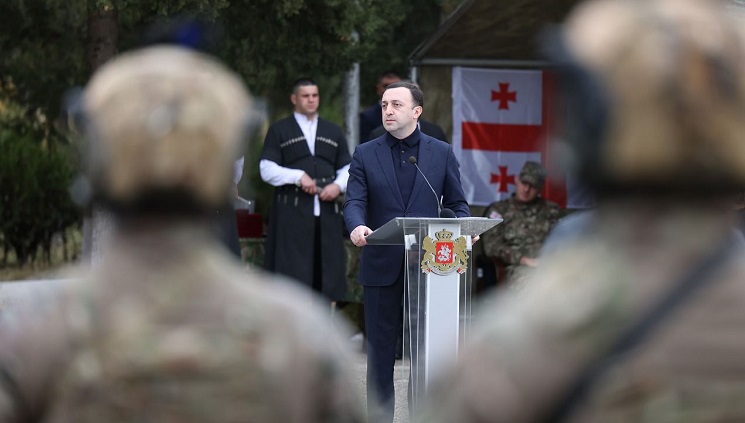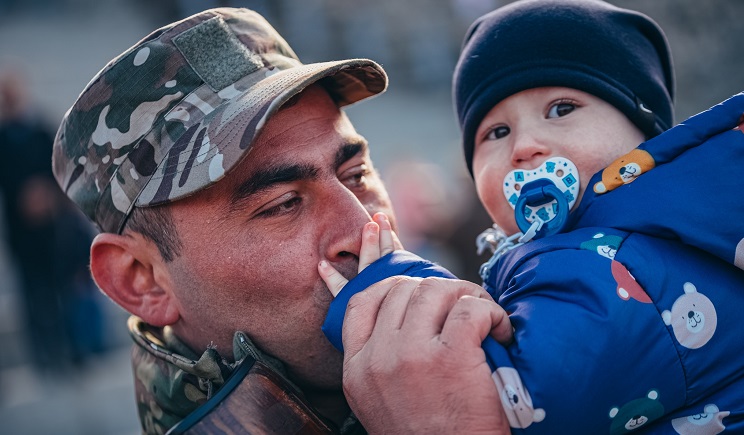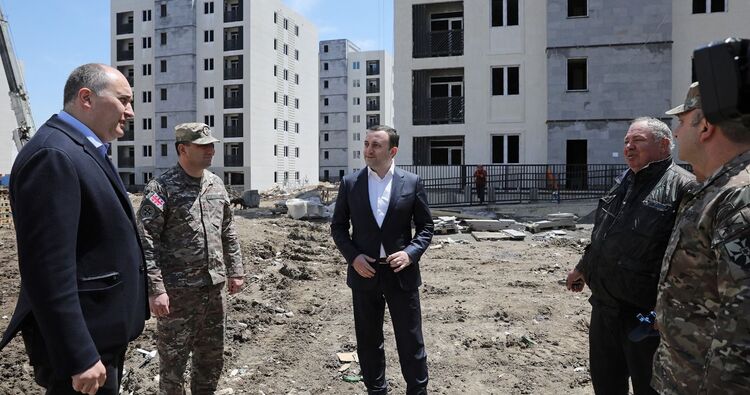PM announces “major changes” to Georgia’s defence system, “flexible” recruitment, prevention of military service evasion

Georgian Prime Minister Irakli Garibashvili on Monday spoke about the changes as part of the country’s new defence code. Photo: Government press office
Georgian Prime Minister Irakli Garibashvili on Monday announced “major changes” to the country’s defence system as part of the new defence code, which includes full transition of the compulsory military service to the Ministry of Defence mandate, requirement for the state to provide accommodation for servicemembers and their families, a “more flexible” military reserve system for students and moves to prevent evasion of service.
Speaking at the weekly Government meeting, the official said starting from January 1, 2025 only the Defence Ministry would be responsible for ensuring compulsory military service - a task currently split between different state institutions - and pledged the creation of an “efficient system” at the cost of spending ₾80 million ($30 mln) from the budget.
He said the Ministry would offer six-, eight- and 11-month training programmes for recruits in accordance with their “career decisions”.
There will be not just theoretical training but also intensive combat, military training. After completing this programme, individuals will receive a relevant document and be awarded the rank of private”, the Government head revealed.
 The PM said ensuring social guarantees for servicemembers was among the Governments' priorities. Photo: Defence Ministry press office.
The PM said ensuring social guarantees for servicemembers was among the Governments' priorities. Photo: Defence Ministry press office.
“Our goal is to create a strong military reserve system”
The PM said the new defende code - to be submitted to the Parliament for approval later this year - was aimed at ensuring a “strong military reserve” in the country, including through a “flexible” system for students to undergo compulsory military service along with continuing their university studies.
He said students under the age of 23 applying for military training during their student years would be able to join a four-year programme with intensive training courses taking up only one month of their time annually.
The country will have 10,000 trained reservists in the fourth year after the launch of the programme, he said, with the figure reaching 100,000 in 10 years.
 The ongoing construction of residential blocks on Makhata Hill in Tbilisi - a project of building 39 seven-storey blocks designated for more than 1,000 servicemembers and their families - is at final stage. Photo: Government press office.
The ongoing construction of residential blocks on Makhata Hill in Tbilisi - a project of building 39 seven-storey blocks designated for more than 1,000 servicemembers and their families - is at final stage. Photo: Government press office.
New defence code will require Gov’t to provide accommodation for servicemembers
Garibashvili said the new defence code would require the Government to build residential blocks for providing accommodation for servicemembers and their families, and ensure their social guarantees.
Servicemembers injured on duty will receive ₾20,000 ($7,500) instead of current ₾7,000 ($2,600), while the one-time compensation for families following the death of family member on duty would reach ₾30,000 ($11,000).
The PM said the ₾100,000 ($38,000) compensation for cases of death in armed action for territorial integrity, freedom and independence of the country would be maintained, adding the pledge showed “our Government's attitude towards the country’s military and law enforcement officers”.
Legal changes to prevent evasion of compulsory military service
Garibashvili said upcoming legal changes would prevent evasion of compulsory military service through the use of “clergyman’s certificate”, a scheme advanced by the Girchi opposition party in 2017 that enabled those expected to undergo the service to evade it by obtaining a religious title from an organisation launched by the party - a practice the PM called a “serious blasphemy and abomination”.
The PM said the new law would prevent the cases by prohibiting the establishment of “fictitious religious organisations” in the country.
 Tweet
Tweet  Share
Share